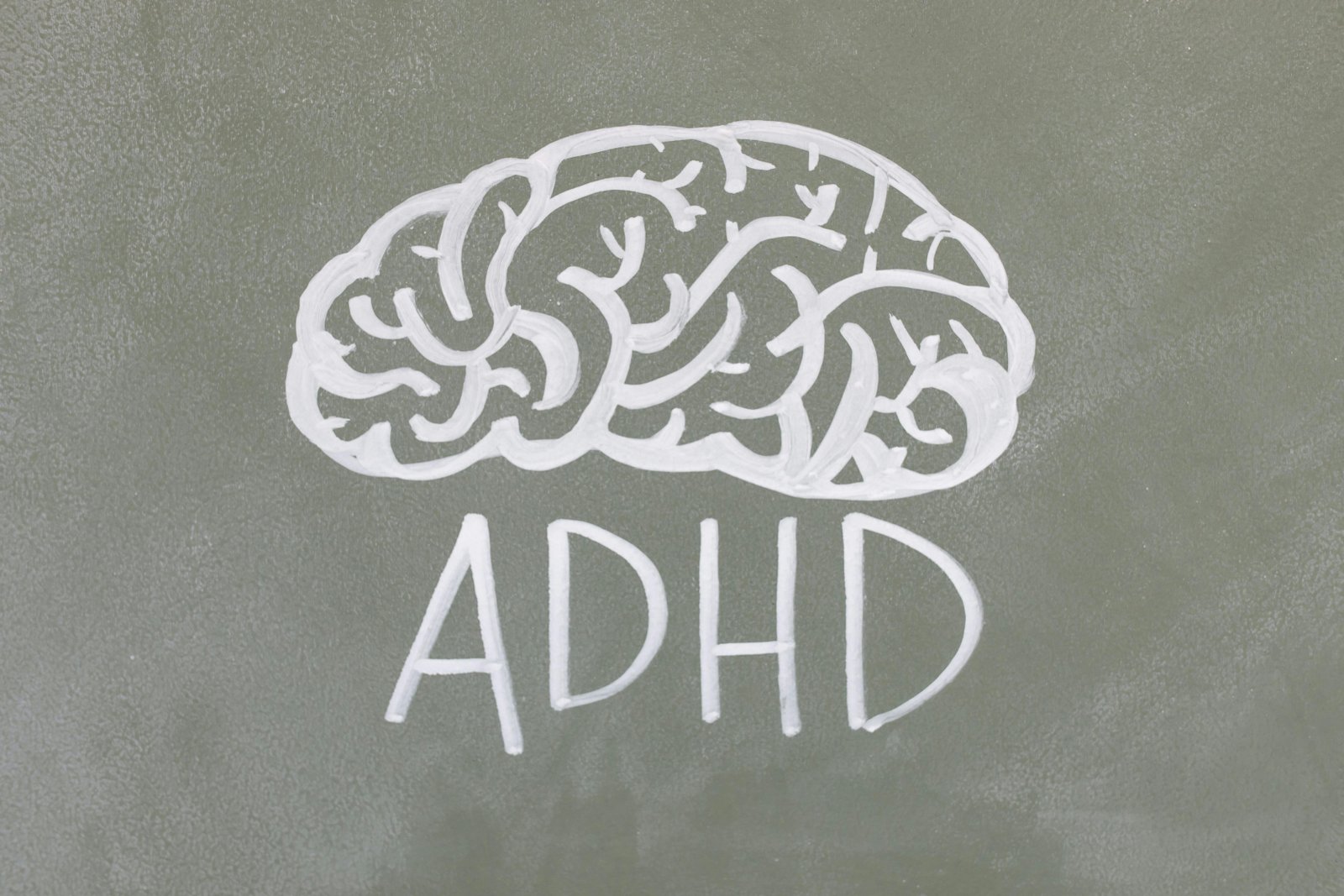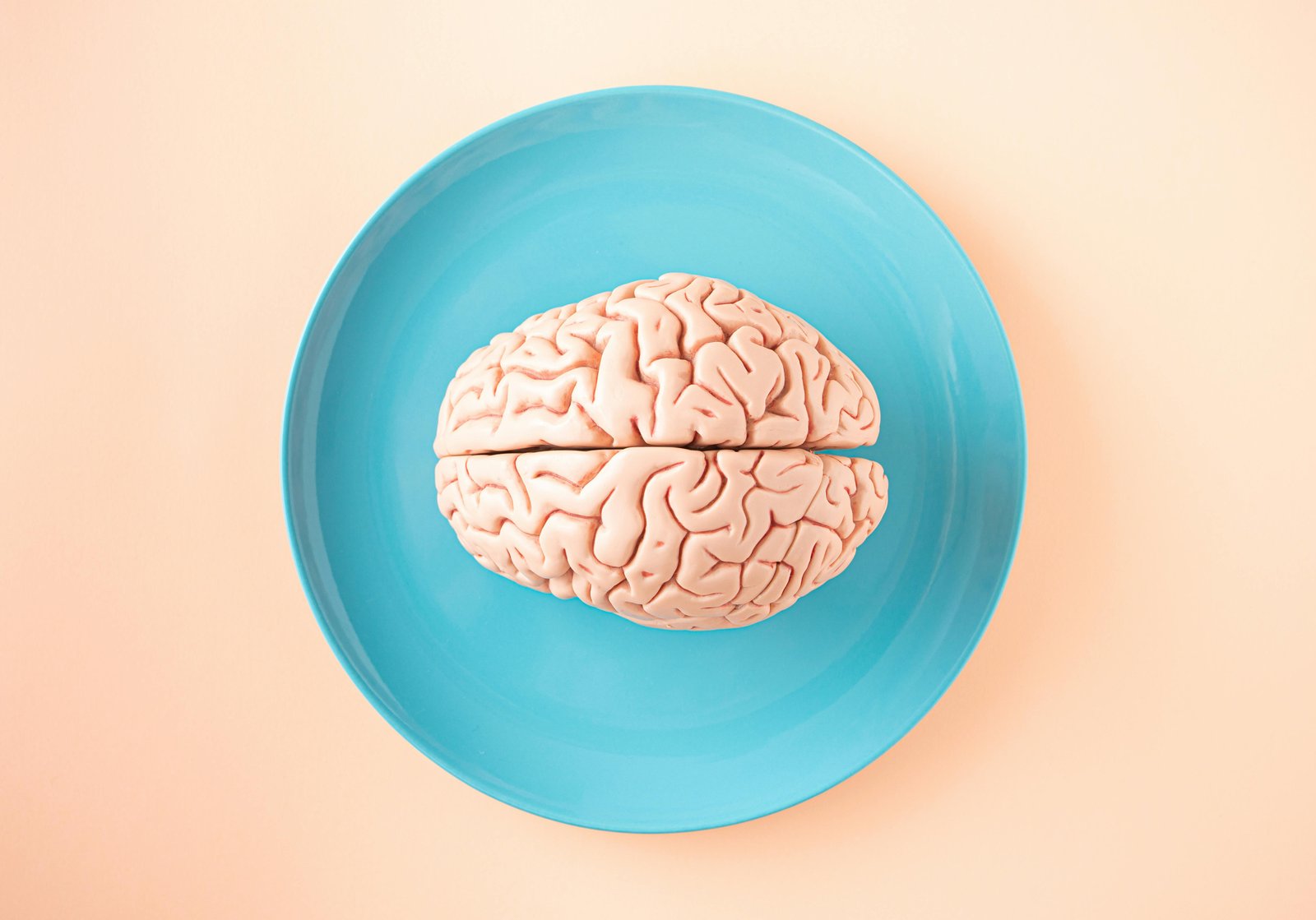Have you ever wondered why some days you feel mentally sharp and focused while other days seem foggy and uninspired? The secret lies in what you feed your body. Your diet plays a crucial role in determining your brain’s performance. Emerging research highlights the profound impact that nutrition has on cognitive abilities, such as memory, attention, and problem-solving skills.
Consider this eye-opening statistic: A study from The American Journal of Clinical Nutrition found that individuals with higher levels of omega-3 fatty acids in their blood had a 47% lower risk of developing dementia compared to those with lower levels. This underscores the importance of diet in maintaining cognitive health. In this article, we’ll delve into how different nutrients affect brain function, offer practical advice on optimizing your diet for cognitive performance, and provide evidence from research and real-life examples.

The Connection Between Nutrition and Cognitive Function
Cognitive functions encompass a range of mental processes including memory, attention, problem-solving, and executive function.
Memory allows us to retain and recall information, attention helps us focus on tasks, problem-solving enables us to navigate challenges, and executive function involves managing complex tasks and making decisions. Each of these cognitive abilities relies on the brain’s capacity to process and integrate information effectively.
Proper nutrition plays a crucial role in boosting cognitive functions because it supplies all essential nutrients to the body and thus brain. It enables the brain to operate efficiently. A well-balanced diet helps reduce inflammation and oxidative stress, both of which can impair cognitive abilities. Conversely, poor dietary habits can contribute to cognitive decline and increase the risk of neurodegenerative diseases.
Research from The Lancet highlights that diets high in refined sugars and processed foods are associated with cognitive impairments and an increased risk of conditions such as Alzheimer’s disease. On the other hand, a diet rich in fruits, vegetables, whole grains, and healthy fats supports brain health and cognitive function.
Key Nutrients for Cognitive Health
Omega-3 Fatty Acids
Omega-3 fatty acids, particularly DHA (docosahexaenoic acid) and EPA (eicosapentaenoic acid), are crucial for maintaining brain health. DHA is a major structural component of brain tissue, making up about 30% of the brain’s fat content. It is essential for maintaining the fluidity of neuronal membranes, which supports efficient signal transmission between brain cells.
A study published in The Journal of Nutrition found that individuals with higher DHA levels performed better on cognitive tests and had a reduced risk of cognitive decline. For a good amount of DHA and EPA, you must consume fatty fish such as salmon, mackerel, and sardines. For those who prefer plant-based options, flaxseeds, chia seeds, and walnuts are rich in ALA (alpha-linolenic acid), a precursor to DHA and EPA.
Antioxidants
Antioxidants play a vital role in protecting the brain from oxidative stress, which can damage brain cells and contribute to cognitive decline. The brain is particularly vulnerable to oxidative stress due to its high metabolic activity and oxygen consumption.
Antioxidants such as vitamins C and E, and flavonoids found in fruits and vegetables, help combat oxidative damage. A study published in The Journal of Nutrition found that diets rich in antioxidants, particularly from berries, were associated with improved cognitive performance and a slower rate of cognitive decline. Blueberries, strawberries, and dark chocolate are excellent sources of antioxidants that can boost brain health.
B Vitamins
B vitamins, including B6, B12, and folate, are essential for maintaining cognitive function. These vitamins support the production of neurotransmitters, which are chemicals that transmit signals in the brain. They also help reduce levels of homocysteine, an amino acid linked to cognitive decline.
A study published in The Lancet found that supplementation with B vitamins, including B6, B12, and folate, slowed cognitive decline in elderly individuals with high homocysteine levels. Foods rich in B vitamins include whole grains, eggs, legumes, and leafy green vegetables. Incorporating these foods into your diet can support brain health and cognitive performance.
Protein and Amino Acids
Proteins and amino acids are vital for the production of neurotransmitters, which are essential for cognitive function. Amino acids such as tryptophan and tyrosine are precursors to serotonin and dopamine, neurotransmitters that regulate mood, attention, and cognitive performance.
Research published in The American Journal of Clinical Nutrition found that diets high in protein were associated with improved cognitive function and attention. Foods like lean meats, dairy products, and legumes provide essential amino acids that support neurotransmitter production and overall brain health.
Minerals
Essential minerals such as iron, zinc, and magnesium play crucial roles in brain function. Iron is necessary for oxygen transport to the brain, and deficiencies can lead to cognitive impairments. A study published in The Journal of Nutrition found that iron deficiency negatively impacted memory and attention in both children and adults.
Zinc supports brain health by contributing to synaptic plasticity, which is crucial for learning and memory. Magnesium helps regulate neurotransmitter function and can improve sleep quality. Nuts, seeds, and legumes are excellent sources of these essential minerals, contributing to cognitive health and performance.

The Impact of Nutrition on Cognitive Performance
Memory and Learning
Proper nutrition significantly impacts memory and learning abilities. Nutrients such as choline, which is found in eggs, are crucial for memory formation. Choline is a precursor to acetylcholine, a neurotransmitter involved in memory processes. A study published in The American Journal of Clinical Nutrition found that higher choline intake was associated with better memory performance.
Antioxidants like vitamin E also support memory. Research published in The Archives of Neurology found that higher vitamin E levels were linked to a slower rate of cognitive decline in older adults. Including antioxidant-rich foods such as nuts, seeds, and berries in your diet can support memory and learning.
Attention and Focus
Attention and focus are enhanced by proper nutrition. Protein-rich foods provide a steady supply of amino acids necessary for neurotransmitter production, which supports sustained attention and concentration. A study in The British Journal of Nutrition found that individuals who consumed a balanced breakfast with protein experienced better focus and cognitive performance throughout the day.
Omega-3 fatty acids also play a role in improving attention span. Research published in The Journal of Attention Disorders showed that children with ADHD who received omega-3 supplements demonstrated improved attention and reduced hyperactivity. Including omega-3-rich foods in your diet can enhance attention and cognitive function.
Mood and Mental Clarity
Nutrition affects mood and mental clarity as well. Interestingly, consuming omega-3 fatty acids has been found to improve mood and ensure mood stability. A study published in The Journal of Clinical Psychiatry found that omega-3 supplementation was associated with reduced symptoms of depression and anxiety, both of which can impair cognitive function.
B vitamins also play a role in mood regulation. Deficiencies in B vitamins have been linked to mood disorders and cognitive impairments. Ensuring adequate intake of these vitamins can help maintain mental clarity and emotional stability. Foods rich in B vitamins, such as whole grains and leafy greens, can support mood and cognitive function.

Effects of Poor Nutrition on Cognitive Function
Nutrient Deficiencies
Deficiencies in key nutrients can have a significant impact on cognitive function. Vitamin B12 deficiency, for example, is known to cause memory problems and cognitive decline. A study published in The New England Journal of Medicine found that low vitamin B12 levels were associated with a higher risk of cognitive impairment in elderly individuals.
Iron deficiency can also affect cognitive performance. Research published in The World Health Organization Bulletin found that iron deficiency anemia can lead to decreased attention, memory, and overall cognitive function in both children and adults. Ensuring adequate intake of iron through sources like lean meats, legumes, and fortified cereals can support cognitive health.
Diet and Cognitive Decline
Unhealthy dietary patterns, such as high intakes of refined sugars and processed foods, can accelerate cognitive decline. Diets high in sugar contribute to inflammation and oxidative stress, both of which are detrimental to brain health. Research published in The American Journal of Clinical Nutrition found that high-sugar diets were associated with an increased risk of cognitive decline and neurodegenerative diseases.
Conversely, a diet rich in fruits, vegetables, and whole grains supports cognitive health. The Mediterranean diet, for example, has been linked to better cognitive function and slower cognitive decline. A study published in The British Journal of Nutrition found that individuals following a Mediterranean diet had a lower risk of cognitive impairments and neurodegenerative diseases.

Practical Tips for Optimizing Nutrition for Cognitive Health
Balanced Diet
To optimize cognitive health, focus on a balanced diet that includes a variety of nutrients. You must make it a point to eat fruits, vegetables, lean proteins, whole grains, and healthy fats in your meals. For example, a meal of grilled salmon, quinoa, and a side of steamed broccoli provides omega-3s, complex carbohydrates, and antioxidants, all of which support brain function.
Consider incorporating nutrient-dense foods such as avocados, which are rich in healthy fats and antioxidants, and eggs, which provide choline for memory function. Eating a variety of colorful fruits and vegetables ensures you get a broad spectrum of vitamins and minerals that support overall brain health.
Meal Planning
Meal planning can help ensure you get the necessary nutrients for cognitive health. Plan your meals to include brain-boosting foods and snacks. For instance, prepare snacks like Greek yogurt with blueberries, a handful of almonds, or carrot sticks with hummus. These options provide essential nutrients like antioxidants, healthy fats, and protein.
For a well-rounded diet, aim to include a variety of nutrient-dense foods in your daily meals. Start your day with a breakfast of oatmeal topped with chia seeds and berries, which provide omega-3s and antioxidants. For lunch, consider a quinoa salad with mixed vegetables and a serving of lean chicken or tofu. This combination offers a balanced mix of protein, healthy fats, and fiber. For dinner, a dish of grilled salmon paired with steamed broccoli and sweet potatoes provides omega-3s, vitamins, and complex carbohydrates.
Meal planning can also involve prepping meals in advance. It won't just help you in saving time but also easier for you to consciously make healthier choices. Prepare and portion out meals for the week, incorporating a variety of brain-boosting foods. This strategy ensures you have nutritious options readily available and reduces the likelihood of opting for less healthy alternatives.
Hydration
Hydration is another crucial factor in cognitive performance. The brain is composed of approximately 75% water, and adequate hydration is essential for maintaining cognitive function. Dehydration can impair concentration, memory, and overall mental clarity.
A study published in The American Journal of Clinical Nutrition found that even mild dehydration can negatively impact cognitive performance, including memory and attention. Aim to drink at least 8 glasses of water a day, and adjust this amount based on your activity level and climate. Herbal teas and water-rich fruits like cucumbers and oranges can also contribute to your daily fluid intake.

Supplements and Cognitive Function
Overview of Supplements
Supplements can play a role in supporting cognitive function, especially if dietary intake is insufficient. Common supplements include fish oil, ginkgo biloba, and vitamin D. Fish oil supplements are rich in omega-3 fatty acids, which, as mentioned earlier, are crucial for brain health. Ginkgo biloba is believed to improve blood flow to the brain and enhance cognitive function, though research results are mixed. Vitamin D, essential for overall health, has also been linked to cognitive function, particularly in older adults.
Efficacy and Considerations
While supplements can offer benefits, their effectiveness can vary, and it's essential to consult with a healthcare provider before starting any new supplement regimen. Research on supplements often shows mixed results, and they should not replace a balanced diet. For example, while fish oil supplements have been shown to improve cognitive function in some studies, the benefits may not be as pronounced as those achieved through a diet rich in omega-3s.
Consulting with a healthcare provider can help you determine the appropriate supplements for your needs and ensure they do not interact with any medications or underlying health conditions. Often people think that they can take supplements instead of actual food and that would be fine but the fact is supplements complement a balanced diet and healthy lifestyle; they cannot replace it.
Lifestyle Factors Complementing Nutrition
Exercise
Incorporating regular physical activity into your routine complements a nutritious diet and enhances cognitive health. Exercise increases blood flow to the brain, promotes the growth of new brain cells, and supports the release of chemicals that boost mood and cognitive function.
Research in The Journal of Clinical Psychiatry shows that regular exercise is linked to better memory, attention, and reduced risk of cognitive decline. Try to engage in moderate to intensity exercise for a minimum of 150 minutes every week. It could be brisk walking, cycling, or swimming. Combining aerobic exercises with strength training can provide comprehensive benefits for cognitive health.
Sleep
For better cognitive functioning, it is very important to have quality sleep. Your body needs at least 7-9 of proper sleep to detox, store, consolidate, and retain memory. A study published in The Journal of Neuroscience found that sleep deprivation impairs cognitive performance, including attention, memory, and decision-making.
Creating a restful sleep environment involves maintaining a consistent sleep schedule, reducing exposure to screens before bedtime, and creating a calm and dark sleeping environment. These practices can help improve sleep quality and, consequently, cognitive function.

Real-Life Examples and Case Studies
Consider the case of Maria, a university student who struggled with focus and memory issues. After adopting a diet rich in omega-3 fatty acids, antioxidants, and B vitamins, she noticed significant improvements in her cognitive performance. Maria’s experience illustrates how dietary changes can lead to tangible cognitive benefits. Her focus and memory improved, leading to better academic performance and overall well-being.
Another example is John, a middle-aged professional who incorporated more fruits, vegetables, and whole grains into his diet. He also began taking a daily fish oil supplement. John reported increased mental clarity and better mood, which positively impacted his work and personal life.
Numerous research studies highlight the connection between nutrition and cognitive performance. For instance, a study published in The Journal of Nutrition found that a diet high in fruits, vegetables, and fish was associated with better cognitive function and slower cognitive decline in older adults. The Mediterranean diet, rich in healthy fats, whole grains, and antioxidants, has been shown to support cognitive health and reduce the risk of neurodegenerative diseases.
Another study in The British Journal of Nutrition emphasized the benefits of dietary patterns rich in antioxidants and omega-3 fatty acids. Participants who followed these dietary patterns experienced slower cognitive decline and better cognitive performance.
Nutrition plays a crucial role in cognitive functioning and performance. By incorporating essential nutrients into your diet and adopting healthy lifestyle habits, you can enhance memory, attention, and overall brain health. A balanced diet, proper hydration, and complementary factors like exercise and sleep are key to maintaining cognitive function. Start making informed dietary choices today to support your brain health and unlock your full cognitive potential.


